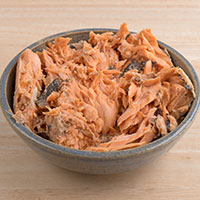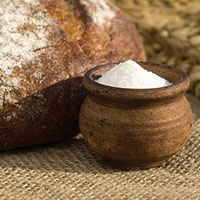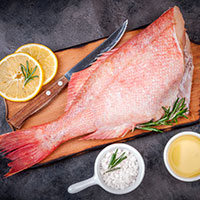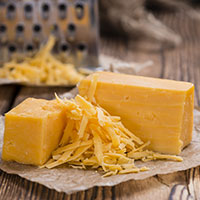| Mineral name |
Iodine |
| What’s it used for? | Production of thyroid hormones; regulating metabolism; nerve and bone formation; healthy hair; skin and nails; brain development |
| Best food sources | Fish, shellfish, dairy products, eggs, seaweed products |
| How much do I need? | *NRV is 150 ug per day |
| Need to know | Iodine is key for the development of the brain during childhood |
*A Nutrient Reference Value or NRV is the recommended level set by theUK Department of Health for daily nutrient intake
Iodine
Iodine is an essential trace mineral, of which two thirds of the body’s stores are found in the thyroid gland. Its main function is the production of the two key thyroid hormones – thyroxine and tri-iodothyronine, both of which help to regulate metabolic rate. This, in turn, influences all body systems; weight, reproduction, nerve and bone formation, body temperature, brain development and the growth and health of hair, skin and nails.
The amino acid, tyrosine, together with the thyroid gland and thyroid hormones all combine to create an effective system.
Why do I need it?
Since the thyroid hormone controls so many body processes, including growth, iodine is crucial during pregnancy for the development of the baby’s brain. Even a marginal deficiency during pregnancy can lead to a lower IQ. However, it’s perfectly possible to build up the stores of iodine before pregnancy and if intake is also good during pregnancy, the baby will be getting sufficient amounts.
When iodine intake is low over a period of time, the thyroid gland will work harder which can cause a swelling in the thyroid gland in the neck, known as a goitre. Although this is uncommon in the UK, in places such as Indonesia, thyroid deficiency can affect nine out of ten people, and goitres are commonly seen.
Best food sources
Iodine is found in a range of foods, the best sources being fish and dairy products. Indeed, white fish contains more iodine than oily fish. Seaweed provides a rich source of iodine and can be easily incorporated into a variety of dishes.
Five foods high in iodine

Oysters – 160 ug per 100g

Sushi with seaweed – 92 ug per 100g

Canned salmon – 60 ug per 100g

Bread (with iodised salt) – 46 ug per 100g

Steamed snapper – 40 ug per 100g

Cheddar cheese – 23 ug per 100g
Are you getting enough?
Iodine deficiency is becoming more of an everyday concern due to the Western diet. This can lead to an increase in bone-related diseases. Additionally, iodine deficiency may be associated with an increased risk for postmenopausal bone loss in women.
Did you know?
- Most adults consuming a balanced diet including iodine-rich foods will meet body requirements
- It is suitable to take during pregnancy and breastfeeding at recommended dosages – consult your healthcare professional for advice
- Kelp, found in seaweed, is also an excellent source of iodine
- Vegetarians and vegans who don’t eat fish may need to supplement with iodine
For all the latest research on iodine click here
Try this
Iodine is found in the Alive! range of multi vitamins and minerals.
For more information visit www.feelaliveuk.com
You can also follow Alive! on Twitter for general health and wellbeing tips: @feelaliveuk



